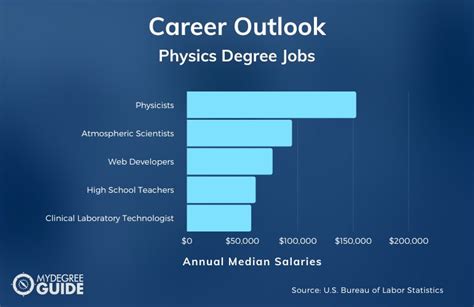Introduction
The state of Michigan is home to a thriving physics industry, with numerous universities, research institutions, and technology-driven companies offering a wide range of career opportunities for individuals with a physics degree. From research and development to teaching and industry positions, the job market in Michigan provides a diverse landscape for physics graduates.

Physics Job Market in Michigan
According to the U.S. Bureau of Labor Statistics (BLS), the median annual salary for physicists in Michigan is $122,840, higher than the national average of $120,430. The BLS also projects that the demand for physicists will grow by 5% from 2021 to 2031, indicating a promising job outlook in the state.
Types of Physics Jobs in Michigan
1. Research and Development
- Physicist (research)
- Postdoctoral research associate
- Laboratory scientist
2. Teaching
- Physics professor
- Lecturer
- High school physics teacher
3. Industry
- Semiconductor engineer
- Radiation protection officer
- Medical physicist
Key Industries for Physicists in Michigan
1. Automotive
Michigan is home to the automotive industry giants General Motors, Ford Motor Company, and Stellantis. These companies hire physicists for research, development, and design of advanced vehicle technologies, including autonomous driving systems, electric powertrains, and lightweight materials.
2. Aerospace
The state is also a hub for aerospace research and development, with companies like Lockheed Martin, Boeing, and Pratt & Whitney operating in Michigan. Physicists in this industry work on projects related to aircraft design, materials engineering, and propulsion systems.
3. Medical
Michigan is a major center for medical research and healthcare. Hospitals and research institutions such as the University of Michigan Health System and the Henry Ford Health System employ physicists for radiation therapy, diagnostic imaging, and medical device development.
4. Energy
The state is investing in renewable energy sources, such as wind and solar power. Physicists play a crucial role in research and development of energy-efficient technologies and sustainable energy solutions.
Tips for Getting a Physics Job in Michigan
- Pursue a Higher Degree: Earning a graduate degree (Master’s or Ph.D.) in physics can significantly enhance your qualifications and competitiveness in the job market.
- Gain Research Experience: Engage in research projects through internships, independent studies, or graduate school to develop essential skills and knowledge.
- Build Networking: Attend industry events, connect with professionals on LinkedIn, and reach out to companies directly to expand your network and learn about potential job opportunities.
- Practice Your Communication Skills: Physicists need to be able to effectively communicate their work to both technical and non-technical audiences. Develop strong written and oral communication skills through presentations, research papers, and coursework.
- Explore Diverse Industries: Don’t limit yourself to traditional physics fields. Explore the growing demand for physicists in industries like automotive, aerospace, and medical to expand your career options.
Table 1: Comparison of Physics Salaries in Michigan
| Industry | Median Annual Salary |
|---|---|
| Automotive | $125,000 |
| Aerospace | $130,000 |
| Medical | $120,000 |
| Energy | $115,000 |
| Research and Development | $135,000 |
| Teaching | $70,000 |
Table 2: List of Physics Employers in Michigan
| Company | Location |
|---|---|
| General Motors | Detroit |
| Ford Motor Company | Dearborn |
| Stellantis | Auburn Hills |
| Lockheed Martin | Troy |
| Boeing | Grand Rapids |
| University of Michigan Health System | Ann Arbor |
| Henry Ford Health System | Detroit |
| DTE Energy | Detroit |
| Consumers Energy | Jackson |
Table 3: Pros and Cons of Physics Jobs in Michigan
| Pros | Cons |
|---|---|
| High earning potential | Limited job availability in certain fields |
| Strong industry presence | Competition for research positions |
| Excellent research facilities | Higher cost of living in certain areas |
| Opportunities for professional growth | Fluctuating funding for scientific research |
Table 4: Tips for Advancing Your Physics Career in Michigan
| Tip | Description |
|---|---|
| Join professional organizations | Connect with other physicists and stay informed about industry trends |
| Attend conferences and workshops | Learn from experts and explore new areas of research |
| Pursue continuing education | Stay up-to-date with advancements in physics and related fields |
| Be open to relocation | Consider job opportunities outside of major cities to expand your career options |
| Develop a creative mindset | Think outside the box to generate innovative ideas for new applications |
Conclusion
Michigan offers a thriving physics job market with diverse opportunities in research, teaching, and industry. By pursuing a higher degree, gaining research experience, building a network, and exploring different industries, individuals with a physics degree can position themselves for success in Michigan’s thriving physics sector.
